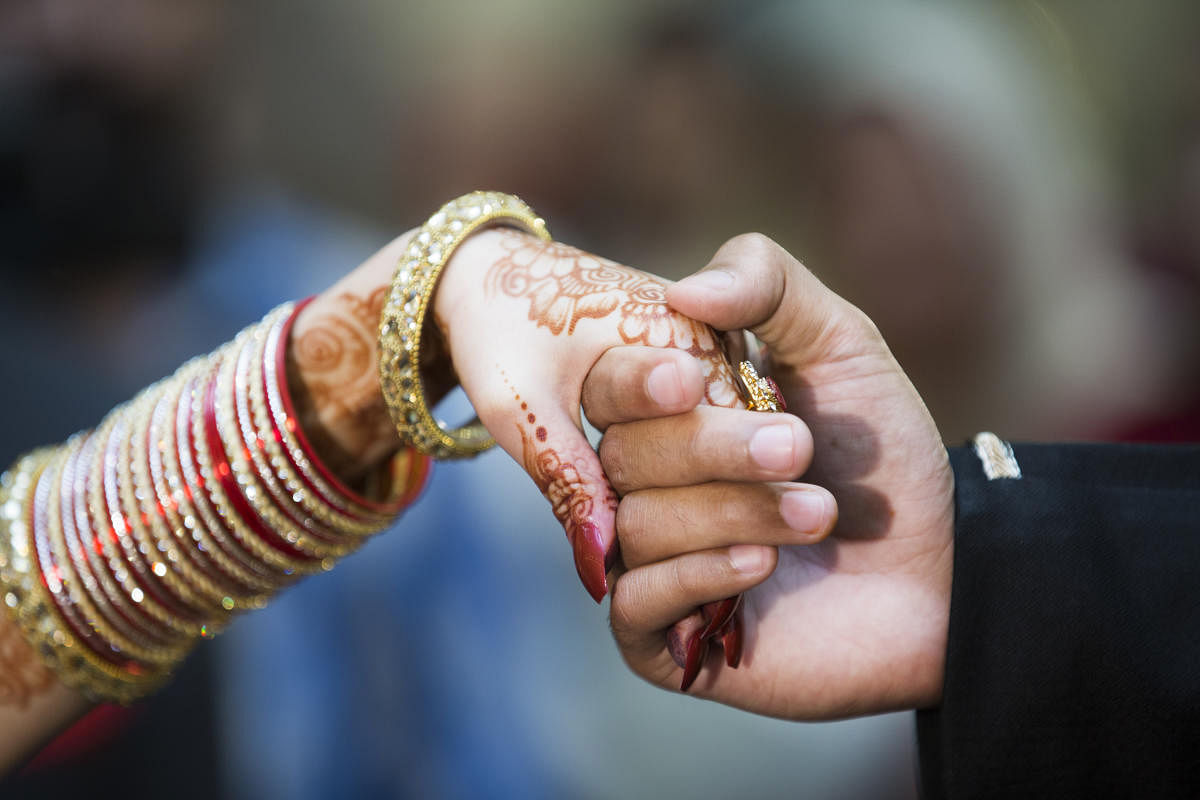
The number of intercaste couples opting for the monetary incentive provided by the state government has seen a decline over the past three years. This scheme is applicable to marriages where one person is from Scheduled Caste or Scheduled Tribe communities.
According to activists, solidifying caste practices, little awareness about government programmes, and the pandemic have all contributed to this decline.
Interest peaked in 2018, with 5,273 couples benefitting from the scheme. The following year, the number of beneficiaries who availed of the programme reduced by 4.8%. In 2020, beneficiaries dropped by 17% compared to 2019. Until December last year, only 2,850 weddings qualified for the incentive in this category.
Under the scheme, Rs 2.5 lakh is disbursed in case the groom is from a SC/ST caste and Rs 3 lakh for a Dalit bride.
The incentive was designed to provide individuals from SC/ST communities with a measure of social stability since couples are usually estranged from families. For example, three years after V L Narasimhamurthy, a Dalit activist, married his wife from another caste, the social boycott continues. “My wife’s family still does not talk to her,” he said. Some couples continue to be harassed for years after the wedding and others are victims of honour killings.
While the initiative is welcome, its decline in popularity is symptomatic of societal realities, explains Mavalli Shankar, a Dalit activist. “There is a crystallisation of intra-caste marriages particularly since the internet revolution. There are specific matrimonial apps and websites created for certain castes,” said Shankar. The present polarised atmosphere has also led to people clinging to religious and cultural practices regardless of their moral validity, he added.
In addition to providing monetary incentives, it is paramount that there is an effort to create a safe environment for couples and promote social acceptance.
Providing police protection when couples register complaints about harassment from family can help assuage some fears. “To aid inter-caste couples, police must register first information reports, investigate and arrest culprits without fail and provide protection in cases that need it,” says Ravi Varma Kumar, former advocate general to the government of Karnataka. This can go a long way in preventing honour killings, he said.
As fault lines between castes grow deeper, it is important to understand the role that marriage plays in carrying forward differences. “In most workplaces and several other places there is at least a sense that caste-based differentiation or discrimination is wrong. With regard to marriages, however, caste is the primary consideration,” said Narasimhamurthy. If the government has any interest in transcending these boundaries, “it should focus on ensuring that inter-caste couples are safe since this is the primary area where casteism thrives,” he added.
“The department has not studied it (the trend) separately. We have asked for a review of all schemes by planning department. Once we get the report, we will know.” said Manivannan P, secretary to minority welfare department. “The department already has many applications this year. However, we are working on outreach activities. We are in discussion with the government agency, MCA, for such activities,” he added.